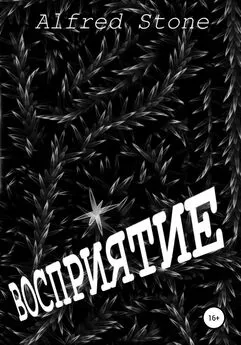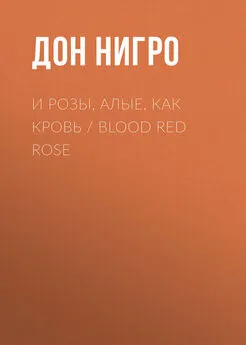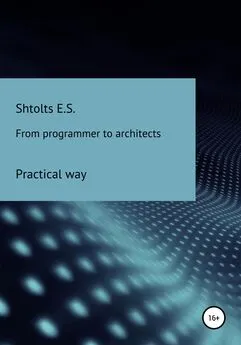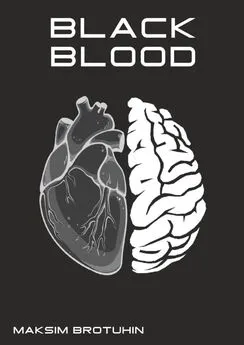Donna Leon - Blood from a stone
- Название:Blood from a stone
- Автор:
- Жанр:
- Издательство:неизвестно
- Год:2005
- ISBN:нет данных
- Рейтинг:
- Избранное:Добавить в избранное
-
Отзывы:
-
Ваша оценка:
Donna Leon - Blood from a stone краткое содержание
Blood from a stone - читать онлайн бесплатно полную версию (весь текст целиком)
Интервал:
Закладка:
‘Think of it this way, Guido: if it’s based on the difference in race, thinking that one race is superior, then it’s lodged in some inner space in her mind, some atavistic place where sweet reason is unlikely to penetrate. But if it’s based on the belief that people are better than others because they have more money or are better educated, then she’s bound sooner or later to encounter enough counter-examples of this to see how ridiculous the idea is.’
‘Should we point it out to her?’ he asked, dreading her answer.
‘No,’ Paola’s response was instant. ‘She’s intelligent, so she’ll figure this one out by herself.’ When Brunetti said nothing, Paola added, ‘If we’re lucky, and she is, too, then she’ll figure both out.’
‘Because you did?’ Brunetti had never been satisfied with any explanation she had ever given him of how a person from a family as limitlessly wealthy as hers could have ended up with social and economic ideas so different from those of her class and most of her relatives.
‘It was easier for me, I think,’ Paola said. ‘Because I never actually believed it. There was never any suggestion, when I was growing up, that we were better than other people. Different, for sure: it would have been hard to disguise that, with all that money washing around.’ She turned to him and tilted her head to one side, the way she did when new ideas sneaked up on her. ‘You know, Guido, hard as this will be for you to believe, I think it never occurred to me — at least when I was young — that we really were rich. After all, my father went off to work every day, just like everybody else’s: we didn’t have a car; we didn’t go on expensive vacations. But it was more than that, I think,’ she said, and he turned to watch the play of thought on her face as she worked this out.
‘It was more a question of what was approved of or disapproved of, sort of without saying. At home, I mean. What I learned to be important about people.’
‘Give me an example,’ he said.
‘The worst, I think — the worst disapproval, that is — was of people who didn’t work. It didn’t much matter to my parents what work a person did, whether they ran a bank or a workshop: the important thing was that they worked and that they thought their work was important.’
Paola pulled away and turned to face him. ‘I think that’s why my father has always liked you so much, Guido, because your work is so important to you.’
Discussion of Paola’s father, his likes and dislikes, always made Brunetti faintly edgy, so he turned back to the matter at hand. ‘And Chiara?’
‘She’ll be all right,’ Paola said with what Brunetti suspected she forced to sound like certainty. Then, after a long pause, she added, ‘At first, I thought I’d reacted too strongly to what she said about him, but now I think I was right.’
‘Better than hitting her, at any rate,’ Brunetti said.
‘And probably more effective,’ Paola added. She leaned back against him and said, ‘We’ll just have to wait and see.’
‘See what?’
‘How she turns out,’ Paola said and reached forward to pick up her glasses and her book.
22
When he left the house soon afterwards, Brunetti felt no regret that he had escaped a longer discussion of the vagaries of the adolescent female psyche. The decades had eased his own memory of adolescence, removing the visceral fear of not fitting in or not being accepted by his companions. He knew these uncertainties beset his daughter, but he no longer felt their power; thus he was uncomfortable at the ease with which he had forgiven her.
He remembered enough of his study of logic to recognize a slippery slope when he saw it, even in his own thinking, but still it felt right to suspect that Chiara’s failure to give sympathy might somehow lead to a refusal to give aid. He was in a hurry to get back to his office, so he stifled the voice asking him if, for example, his own habitual suspicions of southerners would, in comparable fashion, affect his treatment of them.
There was a message on his desk, asking him to call Signor Claudio at home. He did so immediately, using Signor Rossi’s telefonino , and was relieved to hear the old man give his name.
‘It’s me, Claudio,’ Brunetti said. ‘I got your message.’
‘Good, I’m glad you called; I spoke to my friend, and I thought you’d want to know what he told me.’
‘The one in Antwerp?’ Brunetti asked.
‘Yes.’
‘And?’
‘I spoke to him twice, actually,’ the old man clarified. ‘The first time he told me they were from Africa, but I told him I already knew that much, so he said he’d call back. When he did, he said he’d shown them to someone else.’
Brunetti could not stop himself from asking, ‘Someone discreet, I hope?’
Claudio’s voice was cool when he said, ‘Guido, no one’s more discreet than an Antwerp diamond merchant. They make Swiss bankers seem like blabbermouths.’
‘All right,’ said a relieved Brunetti. ‘I’m sorry I interrupted. What did he say?’
‘That they’re from the Kansai. My friend says he agrees.’
‘What’s that?’ Brunetti asked, never having heard the word.
‘A region of West Africa. It’s in the Congo, but some of the pipes cross over into eastern Angola, and so both countries lay claim to the diamonds. It’s pretty much a war zone, and the border doesn’t mean much to anyone any more.’
‘And he’s sure?’ Brunetti asked. He had no idea whether this mattered, but he was tired of almosts and guesses and uncertainty and longed to have definite information, regardless of whether he knew what importance it might have.
After a pause, Claudio said, ‘Not entirely,’ and, with greater patience, added, ‘The other man kept them long enough to check where they come on the colour spectrum,’ as if this should be enough to convince anyone, then went on: ‘You’d understand it if you knew the technology, but you can believe him: it’s a ninety per cent probability that that’s where they come from.’ At Brunetti’s answering silence, Claudio said, ‘No one can make it more certain than that, Guido.’
‘All right,’ Brunetti said. ‘Please thank him for me.’ He let a moment pass and then asked, ‘Anything else?’
‘A friend of mine said he was approached by an African about a week ago.’
‘A friend where?’
‘Here. A jeweller.’
‘Approached with diamonds?’
‘Yes.’
‘Could they have been the same diamonds?’ Brunetti asked.
‘I have no way to know that, Guido. All I know is that the man was African and he had diamonds he wanted to sell.’
‘And?’
‘And my friend looked at them and declined the opportunity to buy them.’
‘Why? Too expensive.’
‘No. The opposite.’
‘What?’
‘They were cheap. The man was asking about half their value. My friend didn’t tell me how many stones were involved, but he did tell me that the man who tried to sell them let it be known that there were more than a hundred of them.’ Before Brunetti could ask, he said, ‘It was a situation where I couldn’t really ask him, not for anything more than he told me.’
‘Did he tell the man he didn’t want to buy them?’
‘Yes.’
‘And?’
‘And he seemed surprised, which my friend thought meant he knew how good the price was.’
‘Why did he?’ Brunetti asked. ‘Your friend. Turn them down, I mean.’
Claudio’s answer took a moment to come. ‘Some of us won’t deal in conflict diamonds or stones that we think are: there’s too much blood on them. It’s as simple as that. And my friend said it was pretty clear that’s what these were.’
‘He wouldn’t buy them even at that price?’ Brunetti asked.
‘No,’ Claudio said, then added, by way of explanation, ‘We all make enough money with our business. We don’t need this on our consciences.’
‘How many of you feel this way?’ Brunetti asked.
‘Ah,’ Claudio began, ‘not a lot.’
‘Then why bother?’
‘I told you: there’s too much blood on them,’ Claudio said. ‘I know people who do buy them. They say it’s not their business where the stones come from or what happens with the money that they pay for them, who gets killed with the weapons that are usually bought with it. They buy the stones and that’s the end of it.’
‘You don’t agree?’
‘I’ve asked you not to play the fool, Guido,’ Claudio said with uncommon heat. Brunetti heard the other man take a deep breath, and then Claudio said, ‘Don’t provoke me. I’m an old man, and I want to live in peace.’
‘I think you do, Claudio,’ Brunetti said, regretting that he had, indeed, provoked him. He asked, ‘Did your friend say what he looked like, the man selling the diamonds?’
‘No. Only that he was African.’ Before Brunetti could respond, Claudio said, ‘I know, I know: they all look the same.’
‘Did he say what language they spoke?’ Brunetti asked, recalling that Angola had once belonged to Portugal.
‘Italian, and he said the man spoke it reasonably well,’ Claudio answered without hesitation.
‘Did he say anything about an accent?’
‘No, but if he was from Africa, he’d have an accent, wouldn’t he?’ Claudio asked.
‘Yes, of course,’ Brunetti said, deciding not to pursue this. Instead, he asked, ‘Do you have any idea where he would be likely to go after your friend turned him down?’ Then without allowing Claudio to speak, Brunetti asked, ‘When did this happen?’
‘Last week some time. Let me think,’ Claudio said and then went silent. Brunetti waited as the older man searched his memory and then said, ‘Last Friday.’ He paused again. ‘That’s two days before the man was killed, isn’t it?’
‘Yes. So maybe he didn’t have enough time to talk to anyone else. But if he did, who would he have gone to?’ Brunetti asked.
There was a long pause, so long it grew awkward. Finally Claudio said, ‘The only one I can think of is Guelfi. He has a shop in San Lio, but there’s no sense talking to him. He won’t tell you anything, not if he bought them, and not if he didn’t buy them, either.’
‘Any reason?’ Brunetti asked, idly paging through the map of his memory to see if he could recall a jewellery shop anywhere near San Lio.
‘No,’ Claudio answered. ‘It’s a sort of principle with him. He never gives anyone anything, even information. Trust me and don’t waste your time trying to talk to him.’
‘I will,’ Brunetti said, and then as quickly, ‘I mean I won’t. Anyone else?’
‘No, not really. Not here, at least. My friends and I are the only other people in the city who would buy in that quantity, and the man I told you about is the only one who was asked. I’m sure about this.’
‘Sure sure or just semi-sure?’ Brunetti asked.
‘Sure sure,’ Claudio answered. ‘Trust me,’ he said again and hung up.
Angola. Was that the country where the old government was taken down to the beach and slaughtered by the men leading the coup? Or was it the one where the old government simply disappeared? Brunetti had once come across the term ‘compassion fatigue’, but thought that the oh-so-clever press had got it wrong, and the term should really be, ‘horror fatigue’. He had a friend in Rome, a former camerawoman for RAI, who had been to most of the world’s trouble spots during her career. Some years ago, when she returned to Rome from Rwanda, she submitted a one-sentence letter of resignation: ‘I cannot film any more piles of bodies.’
Читать дальшеИнтервал:
Закладка:
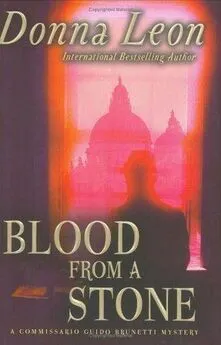
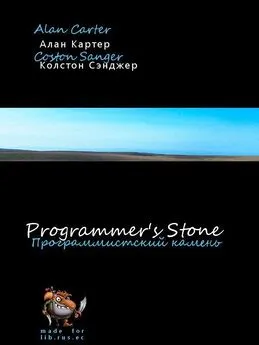
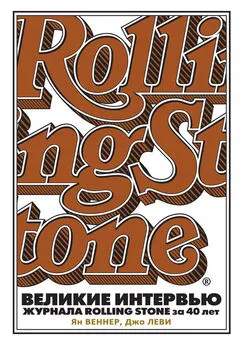
![О Генри - С высоты козел [From the Cabby's Seat]](/books/1083418/o-genri-s-vysoty-kozel-from-the-cabby-s-seat.webp)
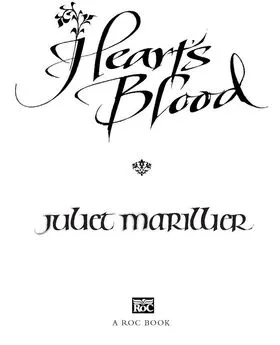
![Инна Владимирова - Blood diamond [litres самиздат]](/books/1149324/inna-vladimirova-blood-diamond-litres-samizdat.webp)
